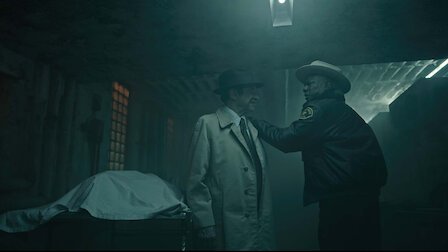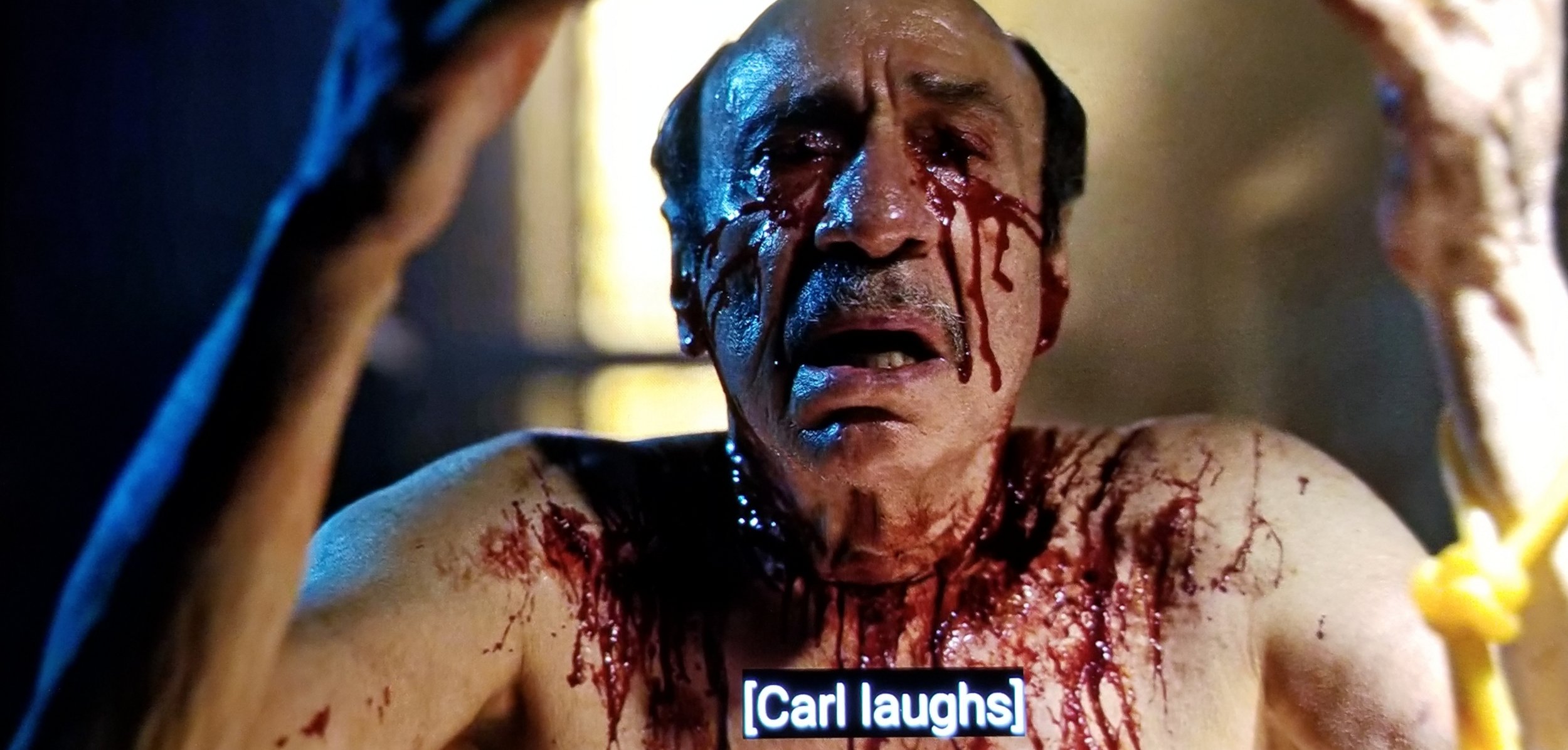Ruggiero is a bit of everything to this film. He is it's conscious. It's reckoning, it's soul. Lefty is not only undercover Detective Joe Pistone’s way into the heart of the mafia, but our way into the heart of the movies central themes. Understanding what makes Lefty different from anything else we've seen from a crime syndicate figure on film is key to understanding why the film is different from anything we've seen in crime syndicate films. Up until this movie, the American gangster on film is one of the purest of white American male fantasies on screen. Although they were usually anti-establishment, anti- authority figures, the gangster would still none-the-less be the flip side of a mirror image of the establishment hard-working American who rises to the top by way of ethics, attitude, ingenuity, and talent. That they functioned outside the purview of the law did little to disrupt the institutional philosophy, it just made them a whole lot more interesting, and desirable. Up until Donnie Brasco these men we're presented largely as reliable narrators of their own rise to power. How they saw themselves was exactly in essence how we were going to see them. They were men of indomitable wills, they were tough, intelligent, and ladies men. They lived lavishly from goon to kingpin and along their rise to power came to enjoy the best of things. Though all of the great films of the genre would also interrogate the underside of the fantasy, they would also engage in portions of it. The Scarface movies showcased their lust for power, Godfather romanticized their codes of honor, Goodfellas the brotherhood. They were all tragic figures, but the tragedy was the fall of the empire, or that none of it was ever real in the first place. Then comes Lefty Ruggiero, and Brasco where the tragedy is futility, of these men's lives, of Donnie Brasco's work. All of this to get out of a lifestyle (working class) that for the most part they are still in. There is no rise to power for Lefty, his gang, or his protege in Brasco. No honor or true sense of brotherhood amongst these theives. They are all willing to berate, betray or kill one another for a dream which will never be realized for any of them. Their lust for power is not attractive, or ambitious, but ugly and small. It is not a story of rise and fall by way of strength and weakness, but simply an ongoing tale of mediocrity and ruin, and Lefty is at the center of all of it. There are no tailored three piece suits, and gorgeous lapels and colors as in Casino, but hideous track suits, and mismatch outerwear. There are no palatial villas, stately mansions, or even quaint track homes, merely small cramped apartments with tacky furniture. Lefty is not an avatar for white alpha male potency and supremacy, but the sad sack reality of an average moe scraping and scratching for a seat at the table. He is a hypochondriac, and a liar, not particularly smart or ingenous, and prone to overstating his importance. He is also a loving father, an at least a decent husband, and a loyal friend, not as an act but as a character trait. It's maybe Pacino's most sympathetic and pathetic role since Panic in Needle Park and Dog Day Afternoon. There's his patent sadness round the eyes, less posture, but always posturing. There is a scene maybe Midway through the film that exemplifies all of this where Lefty is in the hospital anxiously awaiting word on the condition of his son, an addict who has OD'd. As Lefty begins to emote just a little over his son, he begins to show sincere signs of guilt, of recognition, of vulnerability, and you can tell his son is a source of deep pain for Lefty but you don't know exactly how much until suddenly, Pacino lets out this gut wrenching whimper. It’s not long and he immediately composes himself, but it's a level of being right there in that exact place, in that exact emotion that has a degree of difficulty for an actor on the same level as Denzel's single tear in Glory, and it's indicative of the kind of lived in acting Pacino commits to the entire movie.













